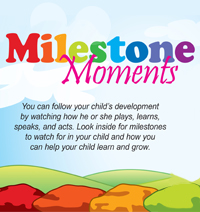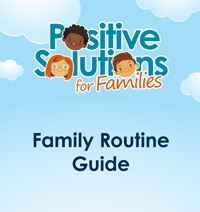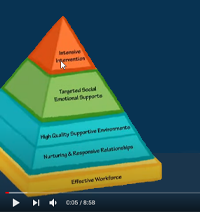Early Childhood Education
 About Early Childhood Education
About Early Childhood Education
A priority of Florida Center for Inclusive Communities is to ensure that all children and their families, including children with or at-risk of disabilities, can access the supports and services needed for optimal development and desired life outcomes. A major focus of our effort is to ensure that young children and their families access high quality, inclusive early education experiences and early education personnel and early intervention specialists have access to research, training, and support to implement evidence-based practices.
In this section, we invite you to explore the diverse resources offered by our technical assistance, training, research, and information dissemination efforts. This page includes links to both internal (FCIC) and external (non-FCIC) websites. External links are selected and reviewed when the page is published. However, the FCIC is not responsible for the content of external websites. The FCIC website does not accept submissions or requests.
Early Childhood Resources Spotlight
Understanding the Pyramid Model
Pyramid Model
The Pyramid Model for Promoting the Social and Emotional Competence in Infants and Young Children. was originally developed in 2003 through the efforts of the Center on the Social and Emotional Foundations for Early Learning (CSEFEL) and the Technical Assistance Center on Social Emotional Intervention for Young Children (TACSEI), both technical assistance centers federally-funded by the Office of Special Education Programs and the Head Start and Child Care bureaus, respectively. Since its initial development, the Pyramid Model has been successfully implemented within programs and states across the nation and there is now an extensive national network of trainers and coaches who support implementation. Exciting research on many aspects of Pyramid Model implementation is ongoing and numerous publications provide descriptive and empirical support for the model. The Pyramid Model Consortium and Florida Center for Inclusive Communities hosts an annual National Training Institute on Effective Practices for Supporting Young Children’s Social and Emotional Development and Addressing Challenging Behavior where practitioners, state system leaders, trainers, and technical assistance providers learn more about implementation and share information. The links below provide useful resources:
Florida Links for Early Childhood Services and Programs
Florida's Early Steps System
Early Steps is a statewide system of early intervention services focused on enhancing parenting practices and behaviors. Early Steps introduces families to professionals who teach them how to improve the development of their children through everyday activities.
Florida Department of Children and Families, Child Care Services
The Florida Department of Children and Families provides access to resources and services to families as they seek to meet their financial and health-related needs while navigating through the childcare landscape.
Division of Early Learning, Florida Department of Education
The Division of Early Learning focuses on facilitating communication and collaboration between early learning educators and providers. DEL looks to prepare young children for success in elementary school and beyond through support of high-quality learning environments and opportunities.
Florida Department of Education, Bureau of Exceptional Student Education
The Bureau of Exceptional Student Education empowers advocates that work to improve the lives of students with special needs by providing resource and supports that promote academic and social success in school settings.
National and State Links
Division for Early Childhood of the Council for Exceptional Children
The Division for Early Childhood (DEC) promotes policies and advances evidence-based practices that support families and enhance the optimal development of young children (0-8) who have or are at risk for developmental delays and disabilities. DEC is an international membership organization for those who work with or on behalf of young children (0-8) with disabilities and other special needs and their families.
Technical Assistance and Training System
Technical Assistance and Training Systems (TATS) provides a statewide system of technical assistance and training to build capacity, create infrastructure, support high fidelity implementation and sustainability of evidence-based practices for the purposes of improving educational results and outcomes for young children with disabilities and their families. Resources include: instructional activities, outcomes and progress monitoring, inclusion, and transition.
Early Childhood Technical Assistance Center
ECTA is a national technical assistance center focused on building state and local system capacity to improve outcomes for children with disabilities and their families. ECTA Center is funded by a cooperative agreement with the Department of Education’s Office of Special Education Programs (OSEP). ECTA provides extensive resources on IDEA, systems, early intervention and early education practices, and outcomes.
National Center on Early Childhood Development, Teaching and Learning (NCECDTL)
NCECDTL advances best practices in the identification, development, and promotion of the implementation of evidence-based child development and teaching and learning practices that are culturally and linguistically responsive and lead to positive child outcomes across early childhood programs.





